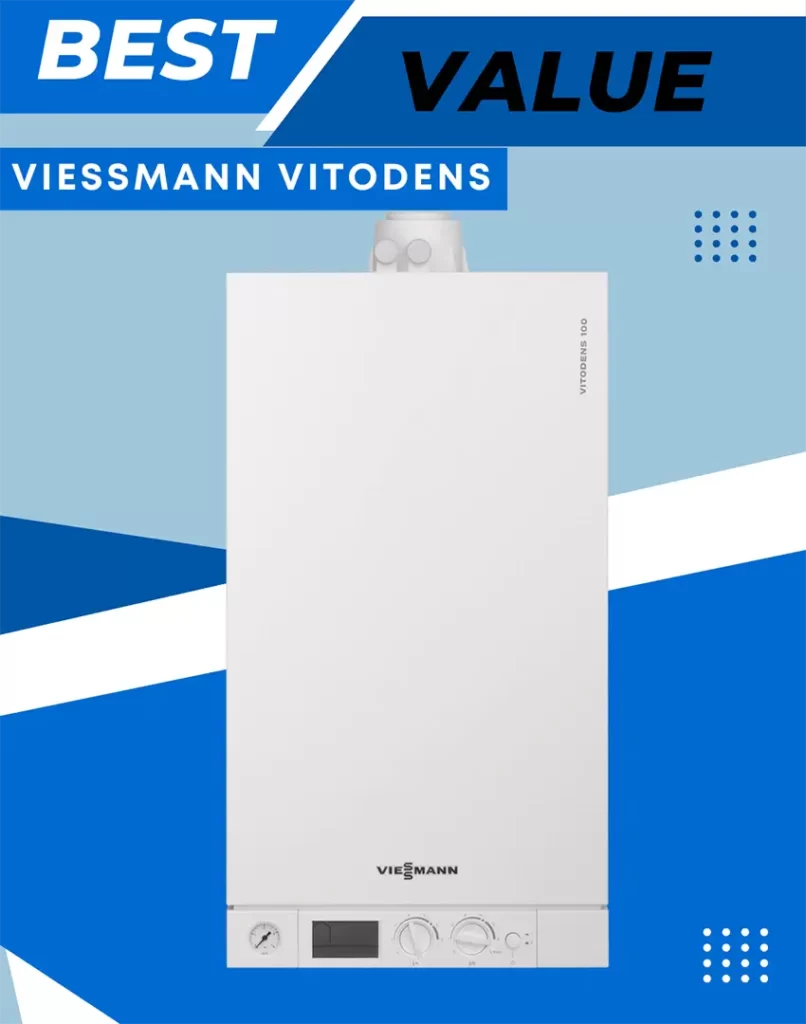Gas Boiler Service and Repair Dublin
Call (01) 429 8666
Gas boiler service and repair involves the maintenance and repair of heating systems used to provide heat and hot water in buildings. Periodic service of boilers can help ensure that the system is operating safely and efficiently, while repairs may be necessary to address any issues that arise over time. Proper maintenance and timely repairs can help extend the lifespan of a boiler and reduce the risk of breakdowns or safety hazards.
We provide Gas boiler service and Repair in Dublin and surrounding areas

Expert boiler service
Discover the simplest boiler service booking system and the most affordable prices in Dublin with us. Give our dedicated customer care team a call, and you’ll be connected with a real person who can assist you in securing a booking date that is convenient for your needs.
We have a team of highly skilled and certified RGII registered technicians, Plumbers, and registered gas installers who possess extensive experience in handling a wide range of heating-related issues anywhere in Dublin and Bray. Our expert plumbers are equipped to service and maintain your boiler according to the manufacturer’s specifications. With over four decades of experience in caring for boilers in Ireland, we have earned a reputation for providing exceptional customer service and a steadfast commitment to our clients.
Gas Boiler Service Checklist
- Check the condition of and permitted location of the appliance and its electrical controls.
- Inspect flue integrity, suitability, condition, size, route, functionality, terminal, cowl, guard and installation standard.
- Check ventilation as per manufacturer’s instructions & air intake analyses ensuring correct location, size, type and source.
- Conduct electrical safety tests including fuse rating, isolation switch, and polarity, and earth continuity, resistance to earth, short circuit test, and supply voltage.
- Check accessibility, functionality and condition of isolating valves.
- Inspect and clean fan unit and heat exchanger.
- Inspect / clean / adjust main and pilot burners and injectors.
- Check and adjust ignition and ionisation electrodes.
- Check temperature control and Conduct burner pressure tests.
- Adjustment time and temperature controls as required.
- Check appliance gas rating and conduct appliance gas safety tests.
- Sample flue gas analysis to ensure efficient and safe operation of the appliance.
- Complete RGII appliance conformance certificate.
Frequently asked questions.
What is Gas boiler service?
A gas boiler service is a regular boiler maintenance check-up performed on a gas boiler by a qualified technician. The service is designed to ensure that the boiler is functioning correctly, safely, and efficiently. During this annual boiler check process, the service engineer will typically inspect the boiler and its components, clean the system and remove any debris, replace any worn or damaged parts, and perform any necessary adjustments or repairs. The gas boiler service may also include safety checks to ensure that the boiler is not producing harmful carbon monoxide gas, which can be dangerous if not detected. It is recommended that gas boilers are serviced annually to keep them in good working order and to prevent breakdowns or safety hazards.
What is the difference between gas boiler service and gas boiler repair?
Gas boiler servicing and gas boiler repair are two distinct services that differ in their approach. While gas boiler servicing is preventative maintenance aimed at keeping the system running smoothly, gas boiler repair is a reactive service intended to address problems that have already arisen. Regular servicing is important to ensure the warranty and efficiency.
Gas boiler servicing involves regular maintenance to identify and fix any potential issues before they become major problems. On the other hand, gas boiler repair is only necessary when something has gone wrong with your boiler. This reactive service is required to fix the problem and restore the system to its proper functioning.
Have you booked your Annual Boiler Service in 2023?
If not drop a message to info@dubllingasworks.com to book an annual boiler service
What is the Recommended Frequency for Replacing Your Boiler?
Boilers are essential equipment that require periodic replacement to maintain optimal efficiency and safety. In general, a well-maintained boiler can last up to 15 years. However, there are several factors that may influence the frequency of boiler replacement, including usage, maintenance, and environmental conditions.
If your boiler is approaching the 15-year mark or if you notice signs of wear and tear such as frequent breakdowns, increased energy bills, or a decrease in heating performance, it may be time to consider a boiler replacement. Additionally, upgrading to a modern high-efficiency boiler can significantly reduce energy costs and improve overall performance.
To determine the best course of action for your specific boiler, You can ring us at (01)429 8666 and consult with our qualified heating professionals who can evaluate your system and provide personalized recommendations.
Benefits of a new high efficient boiler.
- Significantly reduces energy bills due to higher energy efficiency
- Improves energy efficiency resulting in lower gas bills
- Enhanced heating control allows for more precise temperature settings and increased comfort
- Operates safely and efficiently, reducing the risk of malfunctions and breakdowns
- Lower carbon footprint due to reduced energy consumption
- Provides long-term cost savings due to improved efficiency and reduced maintenance costs
- Better for the environment due to lower greenhouse gas emissions.




What are the common types of Heating systems?
Gas boilers, oil boilers, heat pumps, and electric heaters are all common types of heating solutions used in homes and commercial buildings. A gas boiler burns natural gas to heat water, while an oil boiler uses heating oil as its fuel source. Heat pumps, on the other hand, use electricity to move heat from one place to another, effectively transferring warmth from the outside air or ground to the interior of a building. Electric heaters are devices that use electricity as their power source to generate heat and provide warmth.
Each of these heating systems has its own advantages and considerations, such as fuel efficiency, cost, and environmental impact, which should be taken into account when selecting a heating system for a particular application. Regular maintenance and repairs are important to ensure the safe and efficient operation of any heating system.
What is a gas boiler?
A gas boiler is a heating equipment that uses natural gas as its fuel source to heat water. In order to heat a home or structure, the hot water from the boiler is subsequently distributed through a network of pipes and radiators. Due to their efficiency and affordability, gas boilers are a popular option for both home and commercial heating. They can be used to heat and supply hot water to a house or structure, and are often situated in a basement or utility room.
Gas boilers were first developed in the 1970s and 80s, and they were simple but durable, lasting up to 20-30 years. However, they were not very efficient by today’s standards and are now considered obsolete and dangerous. In the late 1980s and early 1990s, more advanced gas boilers were developed, which were safer and slightly more efficient. However, they were not as durable and their lifespan was reduced to 10-15 years, requiring replacement parts during their service life.
In the early to mid-2000s, the focus shifted to high efficiency, which required redesigning three major components and adding a fourth. This was a necessary step to make gas boilers more efficient and reduce their impact on the environment. It is important to note that proper installation and maintenance of gas boilers are crucial to ensuring their safe and efficient operation, and power flushing is recommended to keep the system clean and free of debris.
What is an oil boiler?
A heating device that uses oil as its fuel source to heat water is called an oil boiler. These boilers operate similarly to gas boilers by heating water, which is then circulated around the system via an external pump to provide heat to radiators and hot water. Oil boilers have a long history and were once a common heating solution in homes without a gas supply. Over time, advancements in technology have made modern oil boilers highly efficient and eco-friendly. They now offer sophisticated control systems, longer warranties, and high heat outputs, achieving efficiency levels of up to 97%, which means most of the energy produced is used for heating.

What is heat pumps?
Heat pumps are a type of heating and cooling system that can be used in both residential and commercial buildings. They work by transferring heat from one location to another, either from the outside air or the ground, using a small amount of energy to power the system.
Heat pumps have become increasingly popular in recent years, due to their energy efficiency and environmental benefits. They are much more efficient than traditional heating and cooling systems, as they do not generate heat but simply transfer it from one location to another. This means that heat pumps use less energy and can save homeowners and businesses a lot of money on their energy bills.
Heat pumps come in different types, including air-source, ground-source, and water-source heat pumps. Air-source heat pumps are the most common and work by extracting heat from the air outside and transferring it to the inside of the building. Ground-source heat pumps, also known as geothermal heat pumps, extract heat from the ground using a series of underground pipes. Water-source heat pumps, on the other hand, extract heat from a nearby water source, such as a lake or river.
What is electric heating syestem?
Electric heaters are devices that use electricity to generate heat. They come in various types and sizes, including portable electric heaters, baseboard heaters, wall-mounted heaters, and electric furnaces.
Portable electric heaters are small and can be easily moved around, making them convenient for temporary heating needs. Baseboard heaters are installed along the baseboard of a wall and are typically used to provide zone heating in specific areas of a building. Wall-mounted heaters are installed directly on a wall and can provide heating for a larger space. Electric furnaces are designed to heat an entire building and are typically installed in a central location.
Electric heaters work by passing an electric current through a resistive element, which then converts electrical energy into heat energy. The heat is then radiated into the surrounding space. Some electric heaters may also use a fan to distribute the warm air throughout the room.
Electric heaters are known for their ease of use, efficiency, and affordability. However, they can be more expensive to operate than other types of heating systems and may not be the best option for large buildings or homes with high heating demands.




